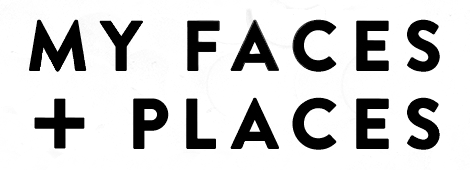Bhutan The Beautiful

I have to pinch myself when we arrived in Paro, the only international airport in Bhutan to make sure I was not dreaming. It has always been my childhood dream to visit this kingdom in the clouds with a Shangri-La mystique known as “Land of the Thunder Dragon”. Our journey into Bhutan was a spiritual and enlightening experience as we visited the many temples, monastic fortresses known as Dzongs and meeting people who are deeply rooted in Mahayana Buddhism.
It is a country where the people still wear their national costumes as their daily attire with pride. While every country’s economic measure of success is by material yardsticks of Gross National Product, Bhutan’s priority is Gross National Happiness where the welfare of the people is of paramount importance. They are the most respectful people I have ever encountered in all my travels.

Terraced rice fields grace the mountain side like waves of green ripples
Bhutan is a small but perfectly formed kingdom wedged between two mighty countries, India and China, in the shadows of the Himalayas. It is a country of superlatives steeped in Buddhism, myths and legends under the sovereign rule of the Wangchuck Dynasty. The royal family is deeply revered and loved by the people.

The breath-taking vista of the Black Mountains in the Himalayas
The magnificent landscape is picture perfect with majestic mountains sweeping down to green valleys carved by cascading rivers. The verdant vegetation varies according to the altitude from alpine to temperate and subtropical forests that cover 72% of the country, of which 60% is under protection, making it one of the last bastions of biodiversity hotspots in the world. Villages and towns dot along the valleys surrounded by emerald green rice terraces, potato fields and other agriculture crops grown on the fertile land.

Our amazing guide Jamyang Tenzin dressed in gho, the traditional costume for men; and Michael Oon
We were accompanied by an excellent guide Jamyang Tenzin and our skilful driver Tandin on our epic journey. Our first stop was at Thimphu the capital city, a fairly modern town reminiscent of Singapore or Hong Kong 50 years ago. It is quite refreshing to see a city with no skyscrapers, traffic congestions, Starbucks or McDonald’s.

Goddesses in a pavilion grace the mini roundabout in Thimphu
The mini roundabout is a pavilion with statues of goddesses and policemen physically conduct the traffic instead of traffic lights! There are hints of modernity creeping in slowly with new buildings under construction but is tightly controlled by the government in terms of heights and designs, which must have aspect of Bhutanese tradition.

The giant statue of Buddha Dordenma overlooking Thimphu
We travelled to the Kuenselphodrang Nature Park on a hill overlooking Thimphu to pay homage to the Buddha Dordenma statue. It is a colossal statue of 51.5m high casts in bronze and gilded in gold sitting on a throne that doubles up as a meditation hall.
It was said that a saint, Terton Pema Lingpa, the Religious Treasure Discoverer, discovered a prophecy dating back to the 8th century to build a Buddha statue on this site that will “emanate an aura of peace and happiness to the world”. We were utterly awestruck by the wondrous vision inside the meditation hall with its golden pillars; religious statues; artwork and the walls decorated with 125,000 miniature Buddha statues.
The Heartland And Soul of Bhutan

The magnificent Punakha Dzong
Tourism is still in its fledgling state in Bhutan with internet connection only in 1999 in the country and infrastructure and the highway is work in progress. As we journeyed westward into the heart of Bhutan on a bone-shaking unfinished road hewn out of the mountainside, dodging muddy potholes and lorries, the jaw-dropping natural beauty of the country unfolds at every turn of the road. Prayer flags are installed everywhere to send prayers to the universe.

Prayer flags are erected everywhere to send prayers to heaven when the wind blows

An amazing natural phenomenon of bee hives nesting in Punakha Dzong protected by the monastery

The mighty fortress in Punakha Dzong
We arrived at Punakha, the old capital, shaken and stirred but exhilarated at the sight of the beautiful Punakha Dzong nestled at the confluence of two rivers, Pho Chu and Mo Chu. Dzongs were built in ancient time as fortresses and monasteries and today they are still used as monasteries and also as government administration offices. Punakha Dzong also known as Palace of Great Happiness was built in 1637 by Zhabdrung Ngawang Namgyal, a Tibetan Lama, who unified Bhutan as a nation-state and instilled a unique cultural identity to the people. The mighty fortress has glorious allegorical paintings, intricate artwork and carvings and houses the most scared relic known as Ranjung Karsapani and the resting place of Zhabdrung’s embalmed body. Punakha is also the winter retreat of the Central Monastic Body of Bhutan with its mild winter.
The most esoteric temple in the Punakha District is the fertility temple of Chimi Lhakhang where the phallus symbol is worshipped notably by women to beget children. The modest temple was founded by Drukpa Kunley, known as the Divine Madman whose method of teaching involved sexual overtone.

Chimi Lhakhang Fertility Temple in Punakha

The phallus is a fertility and good luck symbol
We walked through the village amidst rice fields where every house has a phallus image painted on the walls to ward off evil spirits. The gift shops sell penis models for good luck and fertility much to the amusement of tourists.
Flights of the Black-Necked Cranes

The stunning valley of Phobjikha, the winter roost of the black-necked cranes

An injured black-necked crane being nursed back to health at the crane centre
The valley of Phobjikha is a breath-taking vista where the wide sweeping valleys flanked by lofty mountains are reminiscent of alpine scenery in Switzerland. It is a vast wetland that welcomes the annual winter migration of the rare and endangered Black-Necked Crane where hundreds flock in from the Tibetan Plateau in late October till mid February for their winter roost. It is one of the major attractions in Bhutan and this natural wonder is celebrated with the Black-Necked Crane Festival in November every year with crane-themed dances, folk songs and drama performances in the Gangtey Monastery.

The ancient Gangtey Monastery in Phobjikha – Bhutan the Beautiful
The ancient monastery sits atop a spur overlooking the stunning valley and houses a Buddhist school and prominent religious iconographies. It is said that the cranes circumambulate three times in their flight over the monastery on every arrival before landing on the wetland nearby and do the same on their return flight as if to pay respect to Gangtey Monastery.
Bumthang Bound

Women in colourful kira, their traditional national costumes at a religious ceremony

Children in their traditional attire attending a religious ceremony in Jakar

Worshippers in colourful national costumes at the Jambay Lhakhang for a religious ceremony
The district of Bumthang in Central Bhutan is the nation’s religious heartland and home to some of the oldest temples and monasteries in the country. Our visit to Jakar, a small settlement that sprawls over an expansive valley, coincided with a religious ceremony in the Jambay Lhakhang, one of the oldest temples in the country built in the 7th century dedicated to the Maitreya Buddha.

The Jambay Lhakhang Temple

Butter lamps are lit up as offerings to the gods

Worshippers circumambulating the ancient temple of Jambay Lhakhang with stray dogs joining in the ritual
The villagers turned up in their splendid national costumes to pray and circumambulate round the temple, and strangely with many stray dogs joining in the ritual. Stray dogs in Bhutan are friendly and well fed. The monks held a blessing ceremony by sounding a gong and chanting in unison, their heavenly chant reverberated throughout the temple. Beautiful children join in the ceremony while elderly devotees sat down in groups chanting with their prayer beads. We felt blessed and honoured to witness this auspicious and touching ceremony.
The Great Guru Rinpoche
One of the most revered Buddhist saints in Bhutan is Padmasambhava, the Guru Rinpoche, who brought Buddhism to the country from India. His images adorned most temples and monasteries in the country. He was said to meditate for three months in a cave to subdue a local deity who had caused illness to Sendhu Raja, the king of Bumthang in the 8th century. Guru Rinpoche left an imprint of his body in the cave and today the sacred site is a temple called Kurjey Lhakhang. I peered through the protective glass at the site and was enthralled by the imprint of this sacred guru still visible in the glow of the lamps. Outside the monastery, a tall cypress tree said to have sprouted from the walking stick of Guru Rinpoche, soars to dizzy heights into the sky.

Guru Rinpoche’s Kurjey Lhakhang Temple

Prayer wheels are present in every Dzongs for worshippers to send prayers to heaven as they spin the wheels
On the long return journey back to Thimpu we stopped at Trongsa for the night, a small town overlooking a steep scenic valley. On our brief tour of the impressive Trongsa Dzong, an uncanny thing happened when a monastery dog decided to guide us through the Dzong following us faithfully round the monastery to let us admire the religious iconography and artwork. Perhaps he was a monk in his previous life. A steep path leads up to the Ta Dzong; a watchtower built in 1652, which used to protect the Trongsa Dzong. It is a now a museum exhibiting heritage and religious artefacts and artworks and a temple dedicated to King Gesar of Ling, an 11th century Tibetan spiritual warrior said to be one of the manifestations of Guru Rinpoche and who has the power to subdue demons.

Trongsa lies in a mystical misty valley

The ornate Trongsa Dzong in beautiful traditional design and artwork

The scenic town of Jakar nestles in a beautiful valley
The grand finale of our epic journey to Bhutan was our trek to Tiger’s Nest, which will be in our next blog post. We left Bhutan with a heavy heart and an unforgettable memory of all the momentous sights and sounds we have experienced thanks to Jamyang our amazing guide and Tandin our excellent driver. It would not be an once-in-a-lifetime trip for us; for once bitten by the magic of Bhutan, you are forever smitten.
Read all about our hike to the sacred Tiger’s Nest in the next blog.

Tiger’s Nest in Paro
Check out information and formalities of visiting Bhutan with Tourism Council of Bhutan www.tourism.gov.bt Drukair is the sole airline that flies to Bhutan www.drukair.com.bt
Related Post on Bhutan – Trekking Up The Tiger’s Nest In Bhutan
©MyFacesAndPlaces.co.uk



